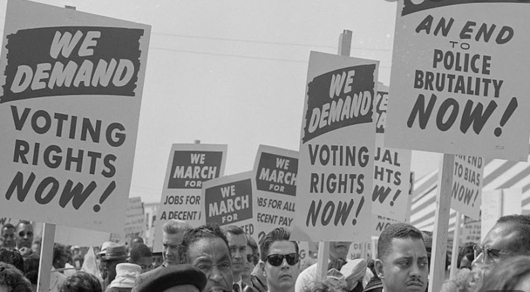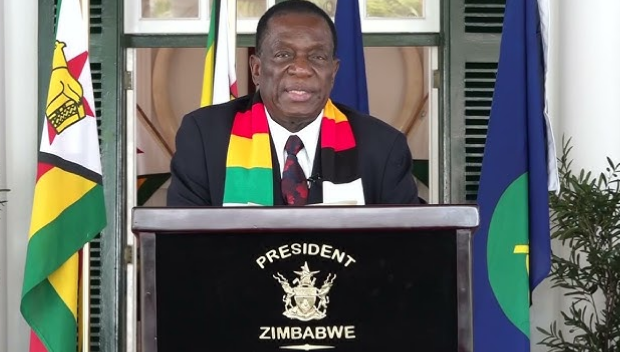Photos: ACLU\YouTube
The Washington Post (TWP) reported last month that (paraphrasing) “Black voters are being shortchanged through redistricting.”
As you know, “redistricting” is a process that permits states to reconstruct congressional districts to account for increases or decreases in their populations as determined by the most recent US Census (in this case the 2020 Census). In addition, states often use “redistricting” opportunities to redraw congressional district lines to accommodate political interests.
Section 2 of the Voting Rights Act of 1965 includes protective provisions related to redistricting exercises; i.e., redistricting should extend to so-called minority populations an equal opportunity to elect representatives of their choice.
TWP article confirms that certain southern states—in particular, Alabama, Florida, Georgia, and Louisiana—have made, or are making, overt efforts to reduce or limit the number of Black politicians who have an opportunity to be elected and serve in the US House of Representatives.
The evidence is that White Republicans in these states are the main actors in adverse redistricting efforts.
What can Black Americans do to halt these efforts?
We recognize that redistricting efforts are nearing their conclusion in many states. Therefore, given a recent US Supreme Court action, it appears that Black Americans must take matters into our own hands quickly to preserve rights codified in Section 2 of the Voting Rights Act. Inter alia, there are at least two actions that Black Americans can take to prevent being shortchanged by redistricting now and in the future:
1. We should organize and prepare to address issues that arise from current and future adverse redistricting exercises.
2. We should commit to “Doing the Arizona” and to advertising our intensions concerning current and future adverse redistricting actions.
You ask: What is “Doing the Arizona?” Recall that, in the early 1990s when the State of Arizona failed to adopt MLK Day as an official holiday, Black Americans all over the nation convinced people across the nation and certain important businesses to boycott the state.
The economic pain that the State of Arizona experienced and anticipated from the boycott was sufficient to convince the state to change its mind about MLK Day.
Similarly, for states that attempt to reduce or limit Black representation at the national level through redistricting, Black Americans should commit to imposing an economic boycott and to motivating businesses to boycott also.
For example:
• Black athletes could forego accepting scholarships from universities in adverse redistricting states.
• Black families and college students could cancel their Spring Breaks to Florida.
• Black college basketball players could decide to not participate at March Madness venues that are in adverse redistricting states.
• Fans could decide to not travel to support their teams when they compete in states that practice adverse redistricting.
• Black Americans could convince businesses to redirect activity away from adverse redistricting states.
If Black Americans begin to adopt these actions immediately, commit to continuing them until states reconsider their adverse redistricting plans, and if we advertise our intentions vigorously, then this economic pressure can motivate a change in plans.
When Black Americans observe that we can stifle or reverse adverse redistricting efforts, then we will know that our economic power translates into real political power. In combination, the economic and political power can be leveraged to generate favorable outcomes for Black Americans all around.
As our ancestors used to say: “One thing leads to another.” What a good thing that would be.
By Brooks Robinson\BlackEconomics.org







